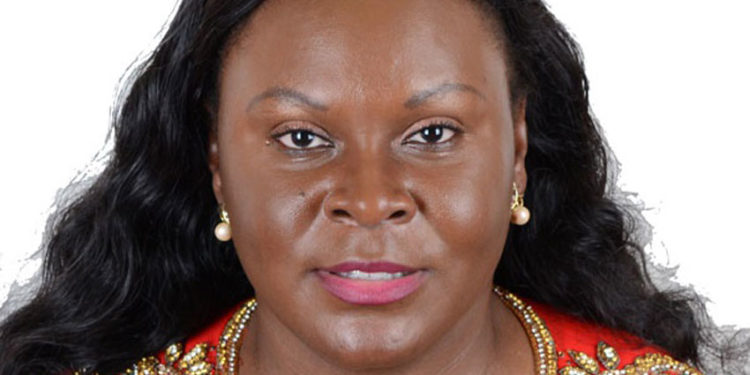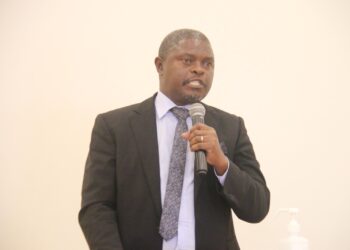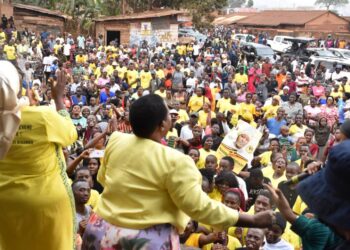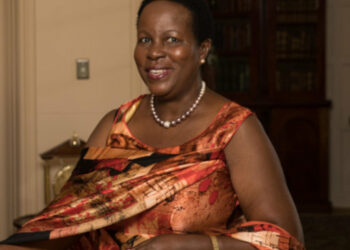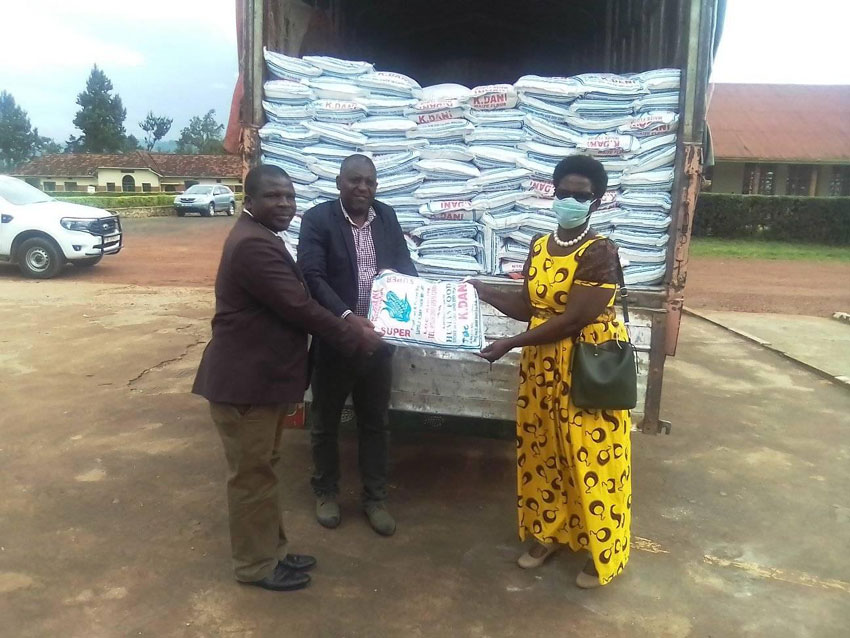The United Nations in Uganda, together with 20 partner organisations, is appealing for US$ 316 million to support the country in minimizing the impact of the COVID-19 pandemic on its most vulnerable groups of people over the next six months.
The appeal comes as COVID-19 threatens to spread in the country, and as the necessary measures taken to combat it are also constraining the delivery of lifesaving services to those most in need. This includes 1.4 million refugees, the third highest number hosted by any country.
Speaking on Thursday in Kampala, the UN Resident Coordinator Rosa Malango said the Government of Uganda had taken on this virus in a concerted and decisive manner, using a whole of government approach. The funding was urgently needed to help Uganda ensure vital health services continue – including for children, women and the chronically ill – as the government works to contain the virus.
She added that the funding was also important to ensure that people can get back on their feet when the economy returns to normal.
“The Government of Uganda has taken on this virus with both hands, adopting timely and appropriate measures to stop its spread,” said Malango. “However, as in other countries, millions of poor people have been impacted adversely.”
While Uganda has over 60 confirmed COVID-19 cases so far, many people are finding it difficult to access lifesaving services as already strained resources are being redirected to contain the outbreak.
The economic effects, compounded by restrictions on movement, are likely to have a severe societal impact on a country where 21.4 percent of the population lives below the poverty line.
The UN and its partners, including 11 local non-governmental organizations, will use the US$ 316 million to assist 12.8 million of the people hardest hit. A critical channel for resource mobilization in support of coherence is the new Uganda Country Based Multi Partner Trust Fund (MPTF).The funding will be invested in improving access to health, food and nutrition as well as social support and projects to rebuild livelihoods.
Focus will also be placed on improving access to anti-retrovirals and other drugs treating chronic illnesses, as well as sexual and reproductive health services. The UN and its partners will also support the creation of food banks, recovery of small-to-medium size businesses and the scaling up of government social protection initiatives such as the Senior Citizens’ Grant programme and overall multi-sectoral coordination across government.
It is critical for Uganda to prevent the loss of lives during the COVID-19 pandemic, including in districts hosting refugee and displaced persons, where maternal and infant death rates remain high.
It is also important that donors enable services to remain in place to protect women and girls, given their vulnerability to violence, exploitation and abuse – especially during times of economic stress and crisis, such as the current situation.
“We are witnessing first-hand the unpredictable needs brought by COVID-19 on communities across Uganda, particularly those already affected by natural disasters, locusts, malnutrition, displacement and poverty,” said Robert Kwesiga, the Secretary General of the Uganda Red Cross Society. “We look forward to this new partnership with the UN to keep the most vulnerable alive.”
“Emergencies like COVID-19 expose and exacerbate inequalities,” said Rita Aciro, Executive Director of the Uganda Women’s Network (UWONET). “They overlap with prevailing social-economic challenges to create multiple levels of social injustice, especially among women and girls, the elderly and people with disabilities.” Aciro added that without the generous support of donors, Uganda would lose the gains it had made towards the Sustainable Development Goals.
Do you have a story in your community or an opinion to share with us: Email us at editorial@watchdoguganda.com


